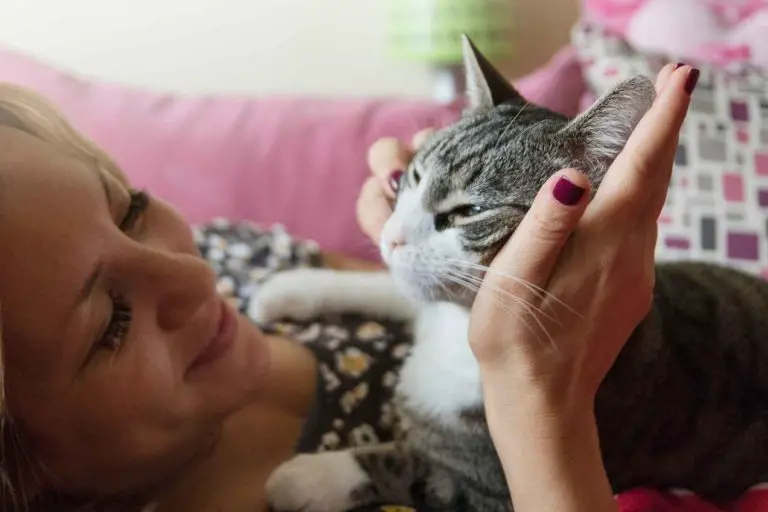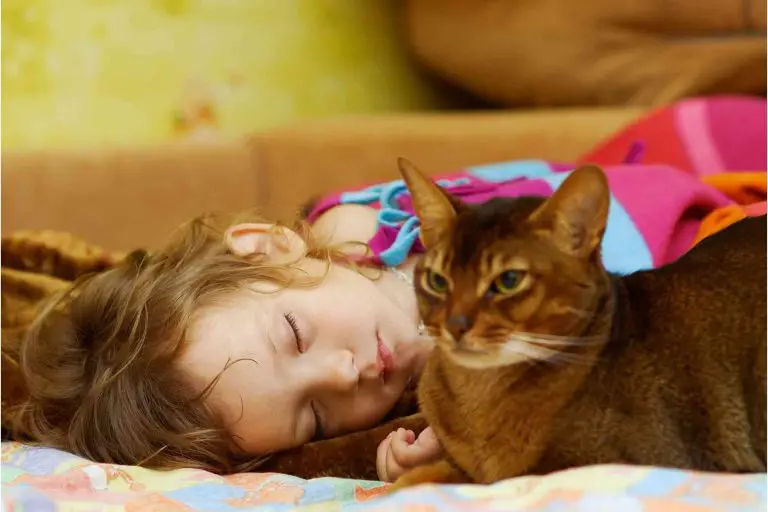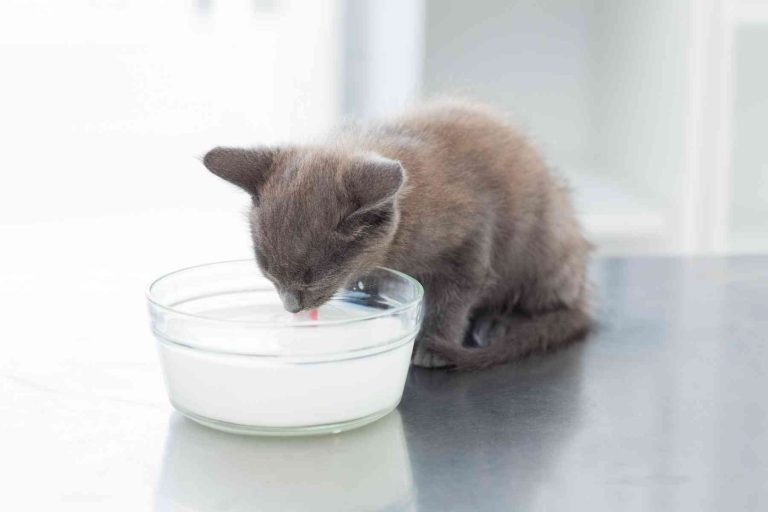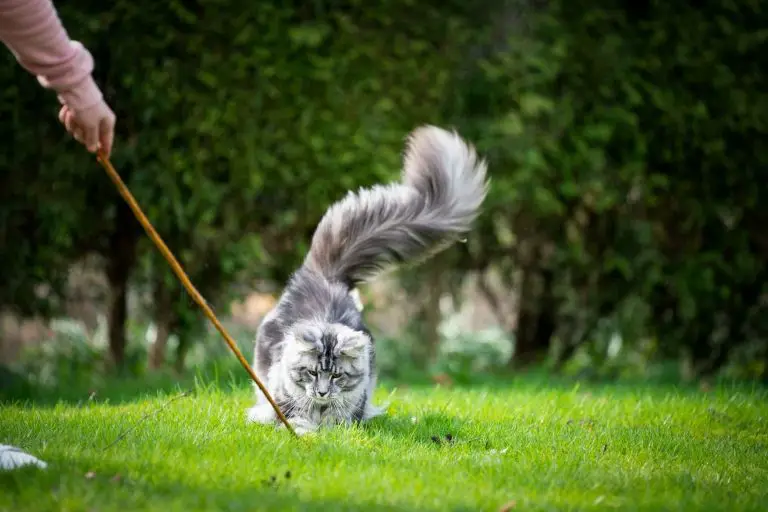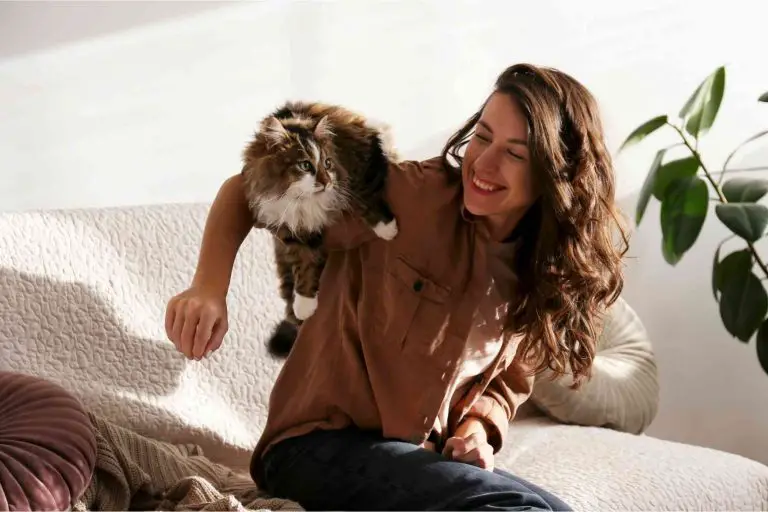Why Does My Cat Have Black Boogers?
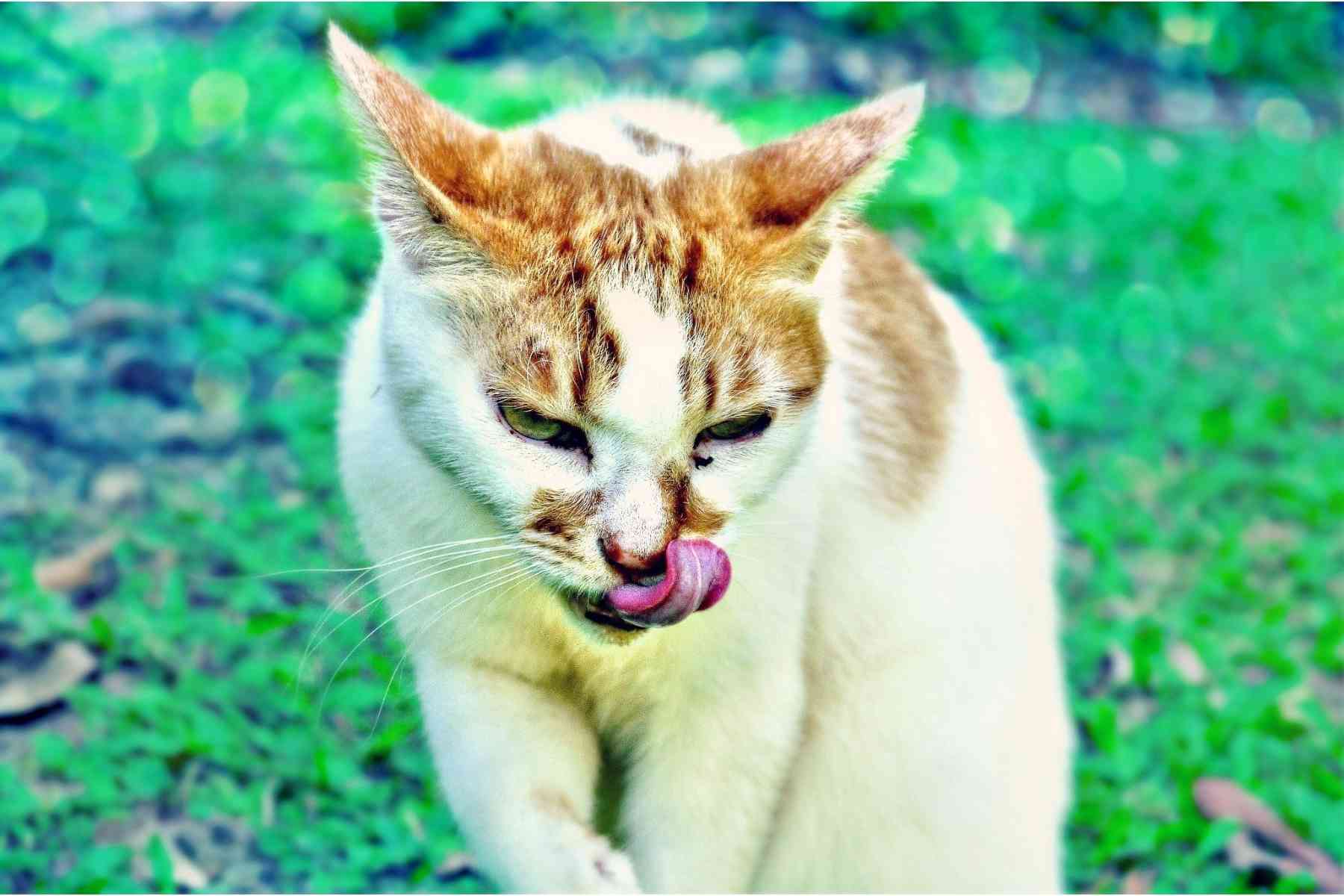
There are two main reasons a cat may have black boogers in their nose: blood in their nasal discharge, or dark lint or other materials stuck to the nasal discharge. Scabs can also be mistaken for black boogers.
Cats are a favorite among pet owners for their adorable appearance, goofy personalities, and ability to groom themselves without human intervention. But sometimes, you may notice some buildup or discharge around your cat’s nose that is black in color, leading you to ask, why does my cat have black boogers?
To answer this question in full, we’ve researched why your cat has black boogers and the underlying cause behind the boogers. Read on to find out more!
Why Is There Black Stuff Coming Out Of My Cat’s Nose?
Black stuff coming out of your cat’s nose, also known as black boogers, occurs first and foremost because of mucus nasal discharge. Boogers are simply dried mucus nasal discharge that crusts up on your cat’s nose.
If it isn’t boogers coming out of your cat’s nose, it could also be black material like lint or fuzz that adhered to the nasal discharge, turning it black.
The last thing that could appear as something black coming out of your cat’s nose is scabs. Scabs are bits of dried blood that cover wounds, even minor ones, like accidental scratches from grooming or playing with other cats.
With all this information, we can conclude that the black stuff coming out of your cat’s nose is either boogers (dried nasal discharge), lint, or other detritus or scabs.
Why Is My Cat Getting Boogers?
Most cats have boogers from time to time naturally, but an increase in boogers or other nasal discharge could be a sign of Upper Respiratory Disease.
For the most part, boogers in your cat’s nose aren’t anything to worry about. Just like we humans occasionally get boogers as a part of our healthy immune system, so do cats.
Boogers occur when the cat’s body is trying to clear something from its nose. Everything from germs to physical obstructions like lint can get caught in the mucus and become trapped. Once the mucus has trapped whatever detrimental thing was trying to enter your cat’s body, it will clear the mucus out through the nose, creating boogers.
Benign boogers will either be clear or slightly yellow in color, but if you start to notice darker yellow, green, or even black boogers, there may be something more serious going on.
Upper Respiratory Disease in cats is often first diagnosed because of the presence of excess, or discolored boogers. If your cat is having significantly more boogers than usual, sneezing out snot or boogers, or has nasal discharge you didn’t notice before, you may want to have your cat checked for Upper Respiratory Disease.
What is Upper Respiratory Disease?
Either bacteria or a virus can cause upper respiratory disease in felines, and it presents similarly to a common cold in humans, although feline Upper Respiratory Disease can be much more serious.
This disease is also known by the name Upper Respiratory Infection.
Some symptoms of Upper Respiratory Disease are:
- Clear or colored discharge from the nose
- Discharge from the eyes
- Coughing
- Sneezing
- Wheezing breaths
If your cat is fully vaccinated and spends all its time indoors, it’s less likely to come down with Upper Respiratory disease.
Cats that live an indoor/outdoor lifestyle, cats that live outdoors full time, and cats that live in large groups are the populations most susceptible to Upper Respiratory Disease.
Are Nose Boogers Normal For Cats?
Yes! Cats can get nose boogers and still be perfectly normal, just like humans.
If your cat has a clean bill of health from your veterinarian while still having boogers on a normal basis, chances are those boogers are completely harmless and are just a sign that your cat’s immune system is functioning properly.
What is a cause for concern, though, is when your cat’s boogers change. More boogers than usual, eye boogers out of nowhere, discolored or black boogers, and constantly dripping nasal discharge can indicate something more serious going on with your cat’s health.
We cat owners love our pets unconditionally, but when something medically relevant happens, it’s always best to check with your vet to find out exactly what is bothering your feline friend.
How Can I Get Rid Of My Cat’s Black Boogers?
Here are a few gentle methods to remove or reduce black boogers in your cat:
- Use a vaporizer or humidifier when your cat is congested
- Wipe away the boogers with a clean, damp cloth
- Use cat-specific nose wipes to clear away boogers
- Avoid any allergens that may bother your cat
- Invest in an air purifier
Why Does My Cat Have Black Boogers In Their Eyes?
Black boogers in a cat’s eyes can occur because of blood in the mucus, scabs being mistaken for boogers, or black lint or other detritus getting caught in the eye mucus.
Have you ever woken up in the morning to find crusty bits in the corner of your eye? These eye boogers aren’t just a human thing; cats get them too.
Black eye boogers occur for the same reasons as black nose boogers occur. They could be discolored or bloody mucus that has dried, in which case you should have your cat checked by your vet.
Black eye boogers could also be scabs from minor scratches, or least worrisome of all, black or dark-colored lint or other debris getting caught in your cat’s natural eye mucus.
The first thing you should check is if you have any black carpet, black furniture, or any black cat toys that could shed lint or other fabric. These minuscule pieces of cloth can easily get caught in a cat’s eyes or nose, causing the appearance of black boogers.
Could Cat Lentigo Simplex Cause Black Boogers?
Cat lentigo simplex, also known as lentigo, or just cat freckles, are benign black markings that can pop up around your cat’s nose and mouth. If you’ve never noticed these black spots before, they may trick you into thinking your cat has black boogers.
Cat lentigo simplex can’t cause black boogers, but clear boogers on top of lentigo can appear black.
If you’ve never noticed these black dots or freckles on your cat, it isn’t because you weren’t paying attention! These markings start out as small black dots and grow larger as the cat ages, often combining to form vast black patches.
One thing to note is that lentigo can look similar to other more serious skin growths, so any time you notice a new marking on your cat, have them evaluated by your vet first before assuming the marking is benign.
In Conclusion
Black boogers may seem odd and worrisome on your cat if you’ve never seen them before, but not all feline black boogers indicate sickness.
Scabs, lint, and lentigo simplex can all masquerade as black boogers on your cat, but if you have any concerns for their health regarding excess boogers or nasal discharge, always consult your vet.
Once you learn the cause of your cat’s black boogers, you can work to get rid of them for good!

